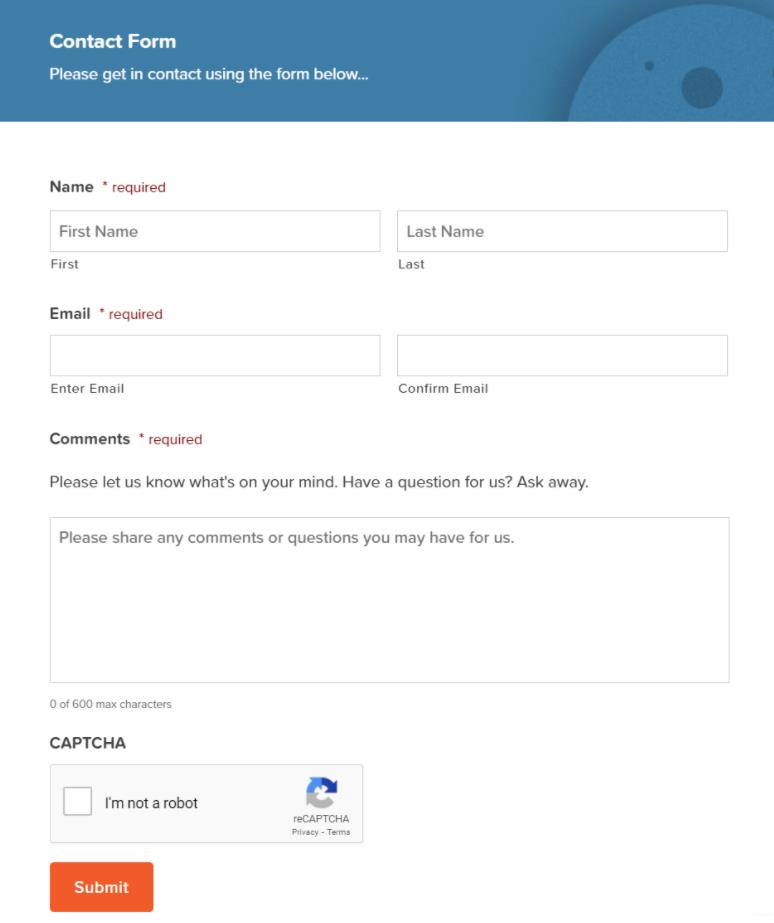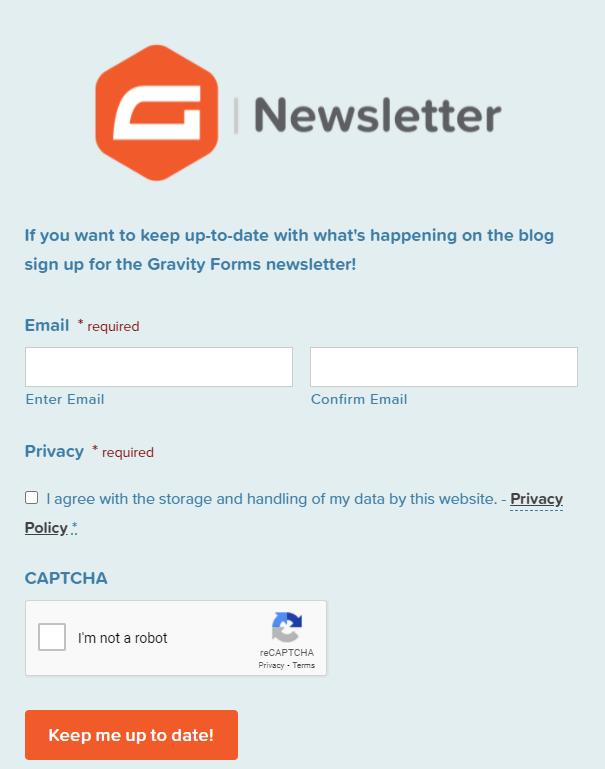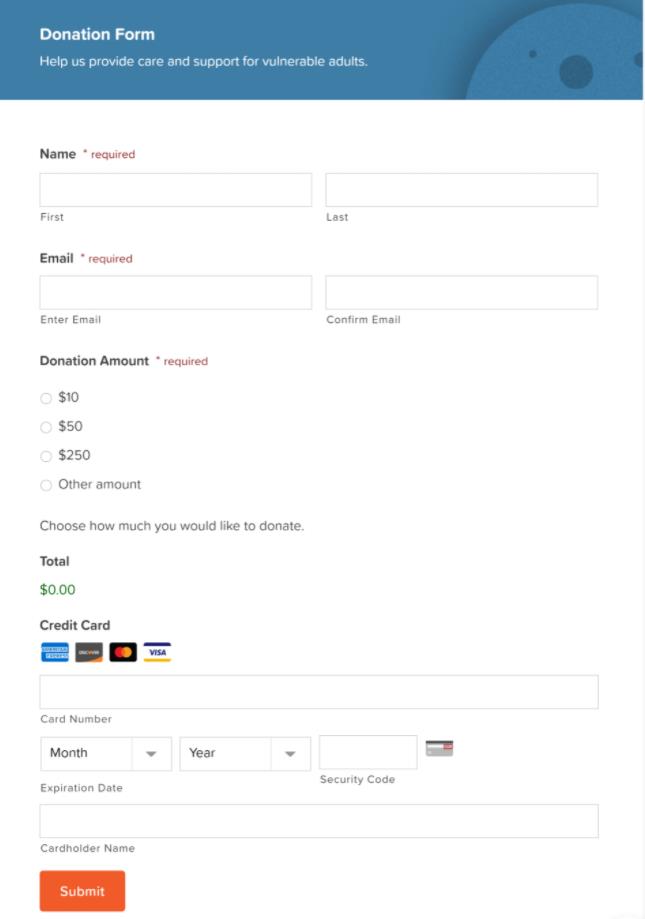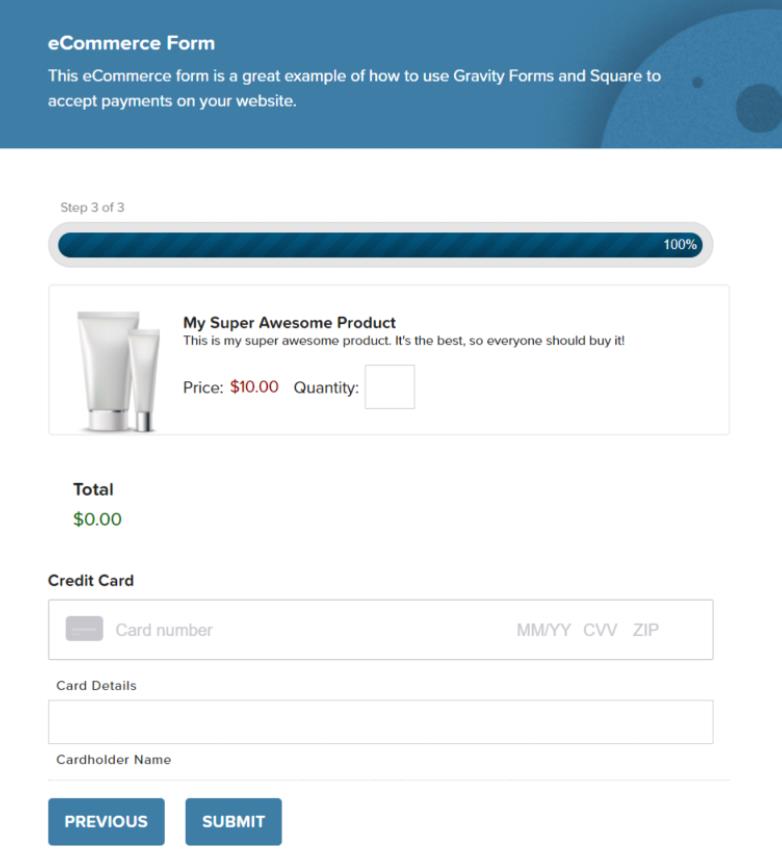Gravity Forms is a versatile WordPress plugin that allows you to collect any information you need from visitors, customers, employees, donors, prospects, and fans. With a little creativity, you can build forms that serve countless purposes for your organization.
The following are the top use cases for Gravity Forms. In this list, you’ll learn all the ways you can use this powerful forms plugin to support your business. You don’t need to create all of these forms – just the ones that make sense for your organization.
With a little creativity, you can build Gravity Forms that serve countless purposes for your organization. Share on X1. Contact Form
The first use case for a Gravity Form is the most obvious: the generic contact form. This is an all-purpose form that exists on nearly every website, typically on a contact page or in the site’s footer. It’s an opportunity for visitors to contact the site managers about, well, anything.
A contact form is usually simple. The only fields are name, email address, and message. Since you don’t know what the user needs, it’s hard to ask for specific information.

However, sometimes it helps to ask for nuggets of information that help the site manager send the query to the proper person. For instance, it might ask for users’ “order number.” Submissions with an order number might be sent to a different customer service person.
Gravity Forms has a great guide on creating a contact form in under two minutes.
2. Account Sign Up
This is another basic but important form on most websites. It’s where users create login credentials for an account to access exclusive sections of your website. If you want any pages locked away from the public, you’ll need this form.
Creating an account sign-up form requires the user registration add-on. When customers complete this form, they are granted a WordPress account on your site. The add-on also comes with pre-made notifications for you and the user (welcome message, password reset email, etc.).
Bonus tip: Link Gravity Forms to your email marketing service. Add new accounts to your subscriber list when they sign up.
3. Email Sign-Up Forms
An email sign-up form gives users an opportunity to subscribe to your email list. You might place this form on your home page, in a sidebar, or at the end of your blog posts. Make sure to explain nearby what they get for signing up, like “weekly email tips” or “our latest articles and videos.”
These forms are usually pretty simple. You don’t want to ask for anything more than you need, so stick to name and email fields. (And honestly, the name field isn’t that critical.)

4. Lead Generation
A lead generation form is another way to capture users’ email addresses, but for the purpose of something bigger. A “lead” is someone who may become a customer at a later point, after some careful nurturing or outreach from your sales team.
Lead generation forms are usually simple, but they ask for more information than a typical contact form. They often ask for details that help qualify the lead. For instance, the form might ask for “company size” or “monthly revenue” to help sales people categorize submitters.
In many cases, lead generation forms deliver something in exchange for the submitter’s contact information, such as access to exclusive content. These offerings are aptly called lead magnets.
5. Registration Forms
Whether you host virtual or in-person events, you need a way to register your attendees. With Gravity Forms, you can create a user-friendly registration form that captures the relevant data and automatically distributes whatever information they need to attend.
If you’re hosting an event, you’re probably using other tools as well. Like any Gravity Form, your registration data is kept in WordPress and easily accessible via native integrations and Zapier automations.
6. Donation Forms
If you are a non-profit, accepting donations on your website is pretty important. But you don’t need a full shopping cart. Gravity Forms lets you take one-off and recurring donations with a simple, lightweight, and user-friendly form.
Donation forms are usually simple. You don’t want to ask for too much information as this might dissuade someone from sending money. However, you need a few advanced Gravity Forms elements, like the product, pricing, and payments fields.

7. Assessment Quizzes
An assessment quiz is a type of form that collects information from users and calculates it into some kind of score or grade. The score is then displayed to the user. A personality test, for instance, is a common type of assessment quiz.
Assessment quizzes make great pieces of content for your website users because they are interactive and provide customized answers. If you’re clever, you can tie your quizzes’ responses into your products and services. (E.g., “Your diet needs work, so check out our customized nutrition plans.”)
8. Feedback/Review Forms
Feedback from your customers and fans is one of your most valuable assets as a business owner. You want your customers to complain when something isn’t right so you can fix the issue for future customers. So it’s smart to give people an opportunity to submit their feedback through a Gravity Form.
This is another simple form: You just need some basic contact information and a message field for the customer to leave their feedback. Add this form to your product pages or its own feedback page.
Bonus tips: Combine it with the Advanced Post Creation to let customers automatically post their own reviews to your site.
9. Product Sales
You don’t need a full ecommerce solution to sell products on your WordPress website. Gravity Forms can help you accept payments for products and services, charge fees for events, sell gift certificates, or set up subscription services. The forms plugin integrates with several payment processors, including Stripe, PayPal, Square, Authorize.net, Mollie, and others.

Since you can place a Gravity From anywhere on your website, you can sell products on any page or post. Don’t force your customers to follow a complex checkout sequence when they can select products and make payments through the same form.
10. Employment Application Forms
You may need an employment application form at some point. These forms are usually larger than most, with lots of questions about education, past employment, and the applicant’s fitness for the company. It’s not unusual to have 30-40 fields on these forms.
Gravity Forms is great for employment forms because you can include as many forms as you like. You can even include advanced elements, like file upload fields (for resumes and cover letters), multi-page layouts to break up large forms, and conditional logic to keep your form personalized and manageable.
11. Surveys
There are countless reasons you might want to send surveys to your audience. You may want to know what your customers think of your products. Maybe you want to know how your employees feel about their work environment. Or you might want to know about the kinds of contents your audience wanted to produce.
With Gravity Forms’ survey add-on, you can survey your audience about anything you like. Most importantly, you can collect and view survey data in a meaningful way that helps you create the best analysis.
Bonus tip: With GFChart, you can display the results of your surveys to the public. The results update in real time whenever there is a new submission, so your live report is always accurate.
12. User-Generated Content
This is a niche case, but some sites rely on it. With Gravity Forms, you can actually turn form submission data into pages and post content on your site, thereby giving users the power to publish their own content. You just need the Advanced Post Creation add-on.
For example, you might want users to submit guest posts. When they submit the form, Gravity Forms will map each field to a field in the post editor, fill it out for you, and save the post as a draft for your review. All the work is done for you!
Think Creatively
We’ve covered the common business use cases for Gravity Forms, but there’s no limit to what you can create with this versatile plugin.
There is a vibrant ecosystem of Gravity Forms add-ons and third-party tools (like GFChart) that extend the plugin’s functionality, letting you modify and enhance nearly every aspect of the product. Don’t be afraid to tinker with the plugin and its countless extensions to build a custom solution that’s right for your specific needs.
